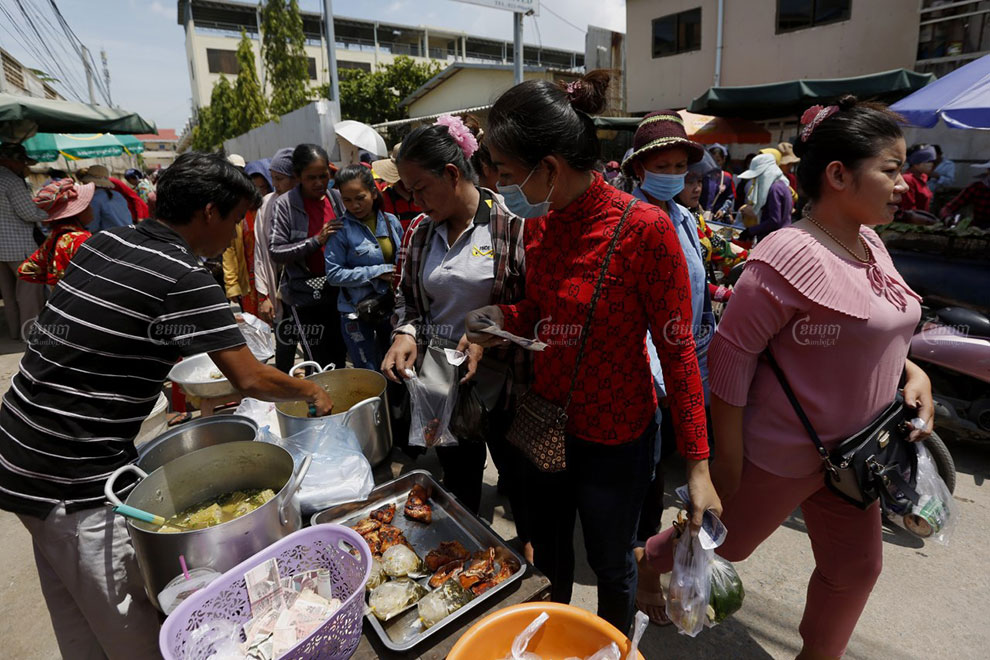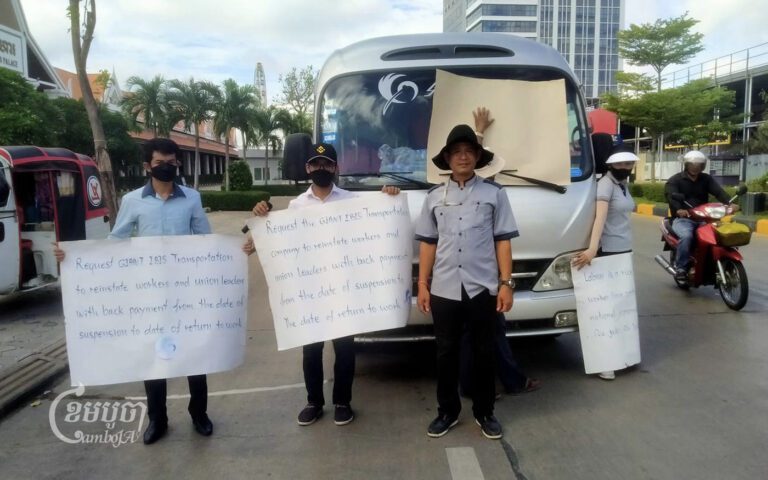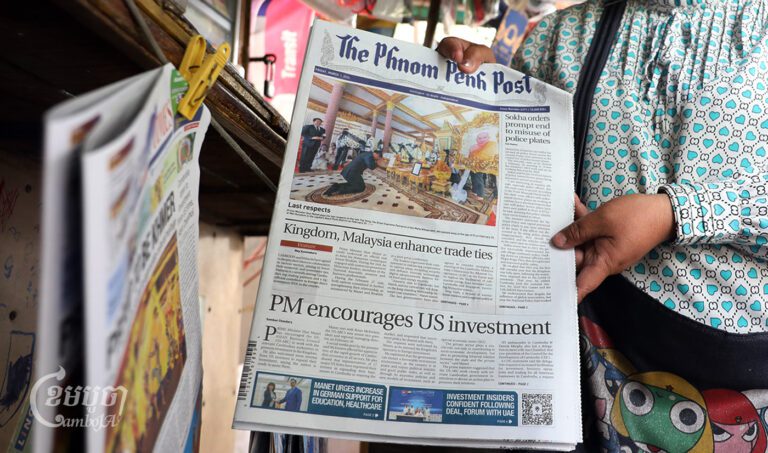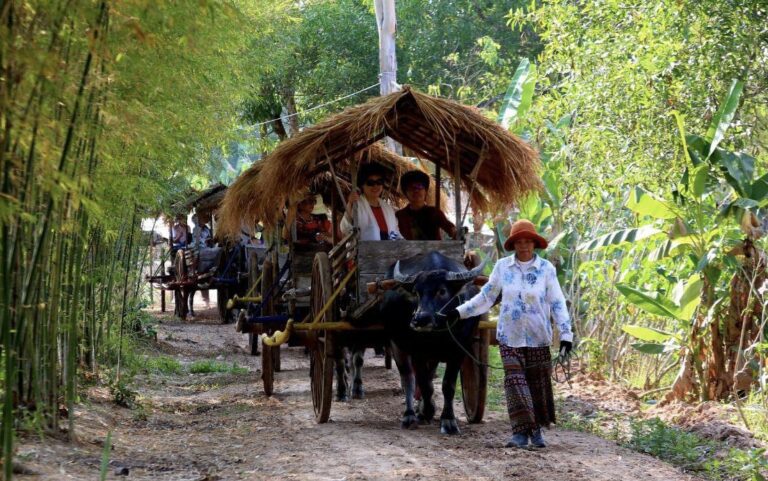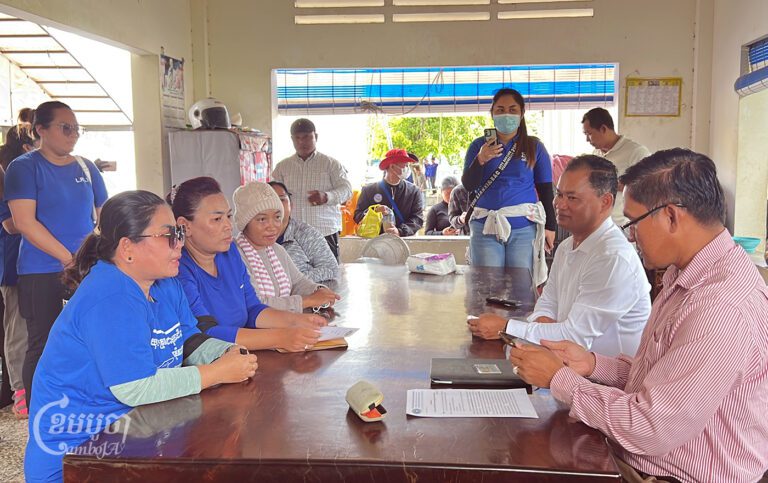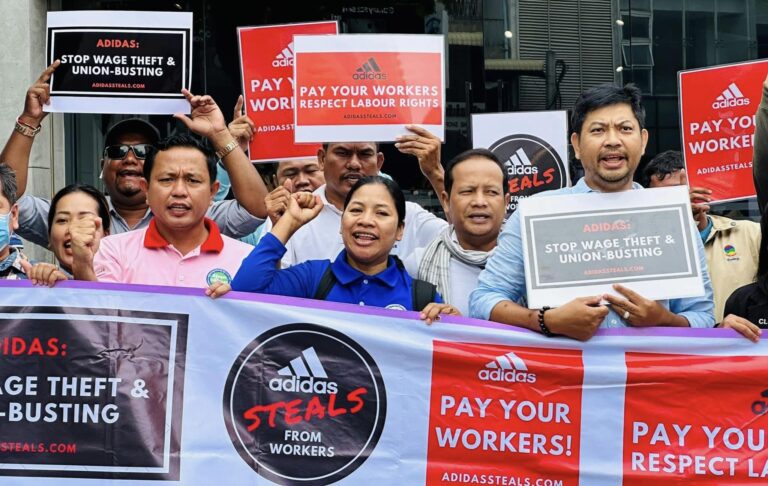The Ministry of Labor has launched a nationwide survey on living conditions and the effects of Covid-19 on garment workers to help determine the need for a minimum wage raise ahead of this year’s three-party talks,as union leaders questioned whether the results would be accurate.
According to a notice from the Labor Ministry on July 17, the survey on “Living Conditions and Effects of Covid-19 on Workers or Employees in the Textile, Garment and Footwear Sector in 2020” will be conducted from July 17 to July 31 on a random sample of workers in Phnom Penh and several provinces.
“In this regard, please all owners or directors of enterprises/establishments and workers/employees selected in the textile, garment and footwear sector and relevant authorities kindly be informed and cooperate with the interviewing officers of the General Secretariat of the National Council on Minimum Wage in this visit,” the notification said.
San Sras, an official at the General Secretariat of the National Council on Minimum Wage at the ministry, said a team from his department is collecting data on living conditions and the economic effects of the global Covid-19 outbreak on garment workers. The survey results will be used to inform discussions for this year’s minimum wage meetings due to begin later this month.
“The most important purpose is that our survey will give us insight before the minimum wage discussions that we hold every year,” Sras said.
He added that a team had already started to survey employees at garment and footwear factories but did not provide further details on how many people would be surveyed, or what questions would be asked of the workers.
The minimum wage affects about 800,000 workers from more than 1,000 factories in the textile, garment, and footwear industries and was set at $190 per month for 2020. It is determined by several rounds of annual three-party talks held between unions, the Garment Manufacturers Association in Cambodia (GMAC), and the Labor Ministry, with this year’s meetings scheduled to take place from this month through September.
In July, individual parties will hold internal meetings, followed by bilateral talks in August and in September, at which point all three parties will make their final suggestions and set the minimum wage for 2021. According to a GMAC statement from June, about 400 factories have suspended operations and more than 150,000 workers have lost their jobs due to the global Covid-19 outbreak.
Yang Samean, leader of the Collective Union of Movement of Workers at Akeentext PTE, Ltd factory in Phnom Penh, said that when the ministry has carried out living condition surveys in the past, many workers were scared to speak freely for fear of repercussions from factory management.
“In fact, workers do not dare to talk honestly because if they speak honestly, it will reflect on the factory, and they will feel scared because if they discuss many problems, the factory may fire them,” Samean said.
She added that if the Labor Ministry managed the survey without the help of union representatives or nongovernmental groups, the results could not be trusted.
“I want the Labor Ministry to allow unions and [civil society] organizations to go down to survey the workers to receive accurate information rather than the ministry doing the survey alone,” she said.
Seak Hong, leader of the Workers Union Federation (WUF) at Horizon Outdoor Factory in Kampong Chhnang province, said that many workers there had faced difficulties due to the Covid-19 outbreak including temporary suspension and contract termination.
“Most workers who were suspended from their jobs have been unable to make a living and most of them owe debts to microfinance institutions and they do not have enough money to repay,” Hong said, adding that the demand for a higher minimum wage was clear.
“I request the government help increase the minimum wage for workers in 2021,” she said.
Ath Thorn, president of Cambodian Labor Confederation, said he thought that the survey was a good idea as workers’financial needs had not been prioritized during covid-19 disease outbreak.
“It is important that the Labor Ministry is preparing to discuss the minimum wage in the future, so if they survey with transparency, it is not a problem, but if they do it without transparency, the survey will not represent workers’ interests,” Thorn said. “I think that it is necessary to have an independent group [oversee the survey].”
He said unions are concerned that the ministry’s survey questions are not neutral and that the data they are collecting may lose some of its meaning. Then, when the results are brought up during minimum wage talks, ministry representatives will be able to reinforce their position, saying that the unions’ demand for a higher wage is baseless.
“Because the survey is related to the minimum wage, we want the survey … to be independent and approved by all three parties” who will participate in the wage talks, Thorn said.
Yang Sophorn, president of Cambodian Alliance of Trade Unions (CATU), said the unions do not carry out their own living conditions survey because when they had done so in the past, the government had not taken the results into account during wage talks.
“We have seen that the inflation of commodity prices in the market does not decrease, so we want to question, shouldn’t we be increasing minimum wage for workers?” Sophorn said.
She noted that the government seems help only privacy sector but they did not help workers because in the past, the government did not create the committee to survey on workers but this year after covid-19 disease outbreak, the government did.
Ken Loo, secretary-general of GMAC, said the survey showed the government is serious about analyzing the effects the recent pandemic has had on factory employees.
“I hope that after studying, [the government] will be able to find ways to help workers,” Loo said. “We welcome this and we told all employers that when they see Labor Ministry officials arrive they need to cooperate.”
Loo declined to comment in more detail and referred questions to the government.
Labor Ministry spokesman Heng Sour could not be reached for comment.
Pa Chanroeun, a social researcher, said that according to his informal survey of workers, many are still waiting for their salary and benefit payments to be finalized after their factories had closed. As a result, a survey to help determine the new minimum wage is beneficial but should follow correct methods so that the results are not marred by inaccuracies.
“In fact, the survey should follow the correct methods and should involve all relevant parties in order to be valid,” Chanroeun said. “If the size of the research is too small and does not connect or relate to stakeholders, then the research results do not reflect the overall picture of the problem.”


